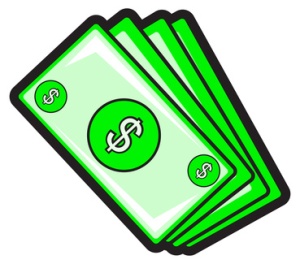
Pros:
1. Assuming you have $40,000 in student loans and you can mix and match different credit cards to pay it all off you could qualify yourself for 400 dollars cash back at 1% or 800 dollars cash back at 2%. Most credit cards offer cash back these days. Points and airline miles used to be the king of credit card rewards but these days’ consumers just want money back, sent directly to them with no questions asked and no hoops to jump through. While you will likely get less than a thousand dollars back, it beats nothing.
2. Credit cards are more flexible than student loans. Student loans will stay with you through good times and bad. If you have to theoretically file for bankruptcy almost all of your debts will be wiped out, but not student loans. You will never get rid of your student loan debt without paying it off, the student loan industry is about as ruthless as it can get. Credit card debt is not something you want to have but it is a little more flexible than student loan debt, you have more freedom to negotiate and set up payment plans.
Cons:
1. One obvious downfall to paying off student loan debt with a credit card is the difference in APR you will experience. The average student loan has an APR of 5% or so while the average credit card has an APR of 14.5%. 10 percentage points is a huge difference, especially when compounded month after month after month. If you let your credit card debt stay around and you are not serious about paying it off you will not come out ahead by doing this, even if you get cash back initially. Tens of thousands of dollars compounded in the double digits over time will grow very, very quickly, if you do not feel confident about your abilities to pay off your credit cards within months, not years or decades, you should ignore this idea altogether.
2. In the end this maneuver will get you nowhere, debt is debt. All you are doing is trading in debt financed at a low interest rate for debt financed at a significantly higher interest rate, when I put it that way it does not seem like such a great idea anymore, does it? If you want to pay off your student loans quickly you have to get serious about making extra payments towards your balance each month. Do not worry with minimum required payments; put every dime you can towards your balance and you will be surprised at how quickly it will shrink. If you have to lower your standard of living for a few years to get rid of this debt that is what will have to happen, this is a very serious financial matter.
Trading debt for debt is not a smart move for most run of the mill consumers. Do not waste your time trying to pay off your student loans with a credit card, get serious about your debts and pay them off as quickly as possible! Who in their right mind in the business world would refinance debt that was at 5% to 20%? If you cannot afford to pay off student loans with your own cash, how are you going to pay off your credit card debt? If you get serious about budgeting and only buying things that you absolutely need you will be surprised at how much money will be left over for you to pay off your debt.